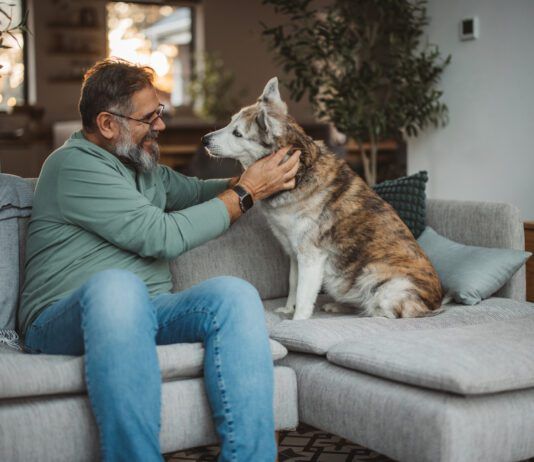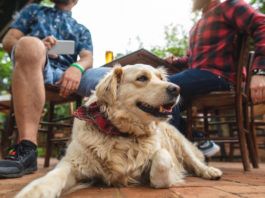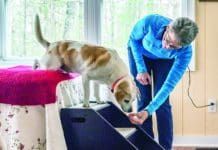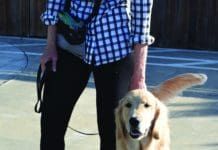How to Prevent Your Dog From Bugging You When You’re Working From Home
A whole lot of dog owners are working from home now, thanks to the coronavirus pandemic. Lots of dogs are loving it – and...
A Proactive Approach
Theres a significant difference between professional dog trainers and many dog owners: Owners tend to react to things the dog has done that they dont like; in their minds, this reaction is what might be called training. In contrast, trainers set up situations so that their canine pupils dont have any opportunities to practice undesired behaviors, and actively teach dogs how rewarding it is to perform desirable alternative behaviors, instead.
How to Keep Dogs Off Furniture – If You Want To
There's a method to keeping your dogs off the furniture if you don't want them there. I personally love a dog on my lap or under my arm when I'm sitting on the sofa. Not only do I enjoy the cuddling, I also get cold easily and love the warmth of dog bodies next to me. In our home, we keep the furniture covered with blankets for easy removal when company comes (dog hair begone!) and both dogs are taught to get off and/or stay off when asked to do so.
How to Teach Your Dog to Greet Nicely – or Not Greet at All
passing by humans and/or dogs without fussing or pulling. Don't expect this to happen without practicing and rewarding your dog for the behavior you want!üThanks to Ally Padgett and Rosi Garcia (above)
Houseguest Etiquette for Dogs
Those of us who love dogs tend to assume that everyone else in our circle of friends and family does, too. Sadly, that's not always the case. In fact, even those who do share our passion for canine companions don't always appreciate the over-enthusiastic attentions of a happy hound, especially when they are trying to enjoy the company of human friends in the comfort of a private home. Whether you are a visitor bringing your own beloved dog with you to someone else's house, or a host greeting friends at your own front door with your canine family members milling about your feet, here are some tips to help you make sure your dog/human visits go well.
Tips on Introducing a New Dog
Be sure to reinforce both/all dogs for calm, appropriate behavior in each other's presence. Your reinforcers should be calming: treats, massage, and verbal praise are good choices; tug and fetch are not. You can use tethers, if necessary, to create calm, and follow Norwegian dog trainer Turid Rugaas' suggestions to have dogs approach each other in a curving line rather than directly, allowing them to sniff the ground and do other displacement and appeasement behaviors such as looking away, as they choose.
Install an Off-Switch on Playtime
you are in for a lot more of the same."
Train Your Dog to Accept Hugs
The process of teaching a dog to tolerate hugging involves either classical conditioning (giving a puppy a positive association with something she doesn't already have an opinion of), or classical counter-conditioning (giving a dog a new association with something she already has a negative opinion of). Either way, the process is similar, but it may go slower if you are working to change an existing opinion rather than simply installing one where none previously exists.
How to Teach Your Dog to Trade
Training a dog to "drop it!" is extremely useful, but what about when you're dealing with a resource-guarding dog, or a dog who insists...
Help With Door-Crazy Dogs
you risk "flooding" the dogs
Teach Your Dog To Settle Down
position a mat or bed near you, and invite your dog to lie down there. You can use a food lure to encourage her to rock onto one hip and mark this posture (with the click of a clicker or a verbal marker such as the word Yes!") and a reward.üReward her with small bits of tasty treats for initially short
Train to “Find It!” to Replace Bad Behaviors
the next step is to give the cue
















